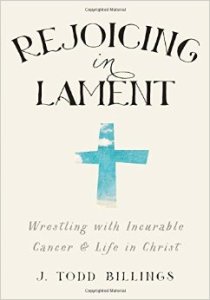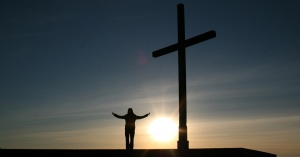 It’s been a couple of weeks since I blogged in Turretin, so I figured I’d get back at it before Scott Swain loses heart. To be honest, I was working my way through his section on the decrees and predestination of God. Apart from the usual density of Turretin’s prose, mucking about with God’s eternal decrees which are actually one decrees and will, only multiply distinguished according to our own conceptions…Well, you get the picture. My hubris in theological writing only extends so far.
It’s been a couple of weeks since I blogged in Turretin, so I figured I’d get back at it before Scott Swain loses heart. To be honest, I was working my way through his section on the decrees and predestination of God. Apart from the usual density of Turretin’s prose, mucking about with God’s eternal decrees which are actually one decrees and will, only multiply distinguished according to our own conceptions…Well, you get the picture. My hubris in theological writing only extends so far.
In any case, I’ve begun Turretin’s section on Creation and things have predictably smoothed out a bit. Given that much of the heavy lifting has been done earlier, Turretin is mercifully clear, and there is quite a bit of interesting biblical exegesis. Actually, I really found a few sections of his examination of the days of creation to be beautiful. What’s more, I’m continually shocked at the broadness of Turretin’s learning as well as the sources he’s willing to draw on. In one paragraph alone, he appeals to the Targum Onkelos, another rabbi, Rashi’s commentary, and caps it off with a quotation from Augustine.
What’s really struck me in this section, though, is the oddness of some of his discussion questions. For instance, there are a number of the discussions on subjects you’d expect. He has a longish question on whether creation is eternal or not, or whether it could theoretically have been eternal as Aquinas argued. Not only is that a famous debate in the middle ages, for those paying attention to current discussions around creation, that debate is still live. For people exploring panentheist theologies, or versions where God is something like the emergent property of the universe, Turretin’s discussion of whether anything besides God could be eternal can easily become relevant.
On the other hand, there are times when four hundred years distance in terms of culture and scientific cosmology show their colors.
How many of you would think to ask the question and argue at length over the question of “What season was the world created?” I mean, really, was it spring, fall, winter, or summer when Adam popped up in the Garden of Eden? Were the leaves just turning red, gold, and brown, or were they newly in flower? Was it harvest time, or were the flowers just blooming? Would Adam have to knit a sweater soon, or were things nice and balmy? Or maybe Eden was just perpetually living in summer–kind of like Orange County?
I’m going to assume that if you’re like me, this question simply never occurred to you. But apparently this was a lively enough debate for Turretin to devote four pages of dense prose to the matter.
Another section that made me giggle a bit, was his segment on the nature of the waters above in the heavens. This is the 1600s so they’re not working with our modern cosmology, but that doesn’t mean they couldn’t have learned discussions based on the best observation and scientific theories of the day–theories that we might still find plausible and with sufficient explanatory power to convince us if we didn’t have computers connected to telescopes floating about in space.
What’s interesting is how these paradigms played a role in their theological disputation. For instance, the “waters of the heaven” debated became relevant in Turretin’s debate with the Lutherans because apparently some Lutherans were asserting that a layer of water would interfere with the type ascension of Christ and believers the Reformed asserted. They then used that premise to strengthen their arguments for their views of the Lord’s Supper which depends on the omnipresence of Christ’s physical body. See how quickly that goes from bizarre preoccupation to important sacramental debate? (For the record, Turretin believed that they referred the clouds on the basis of scientific theories and exegesis.)
Or again, among other reasons, Turretin reasoned that Adam was created in a part of the world that was in Autumn at the time because it was the most hospitable season for man. This is important because it gives testimony to the benevolent care of God for his human Image-bearers. It also points us to the fact that humanity is the crown of creation–the world was made for man, not the other way around. In other words, in the middle of this rather odd discussion–to our minds–there’s a profound humanism at work that still speaks a biblical word to us today.
Of course, all of these raises the question: which debates and discussions will give our spiritual and theological descendants a bit of a giggle? Which of the hot topic issues that currently exercise us, or fascinate us will pass entirely out of the theological discussion in the coming decades and centuries? We need to remember that our own age is not the summit of theological development. Being farther down the timeline doesn’t necessarily mean we’re farther along in the discussion. At times contemporary concerns can end up being little more than distractions in the long run. Distinctions can be discarded and lost for a time as unnecessary or out-moded, only to be discovered as crucial after the damage of their loss has been made painfully apparent by the failure of theological discussion without them.
Only time will tell, of course. May God give us the grace to struggle faithfully for the truth in all of our discussions and the humility to know the provisional, time-bound nature of all our creaturely labors.
Soli Deo Gloria





